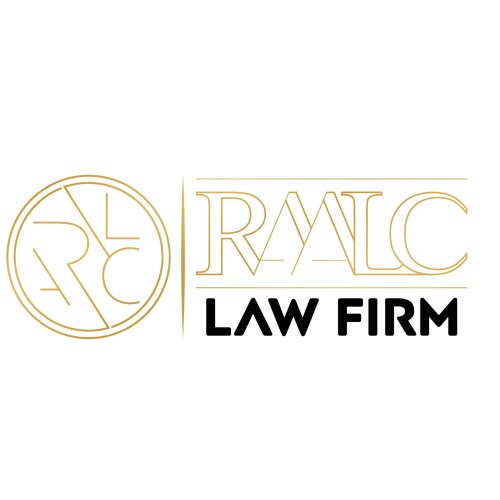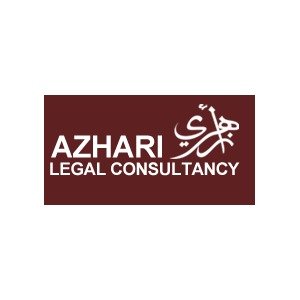Best Debt Capital Markets Lawyers in Dubai
Share your needs with us, get contacted by law firms.
Free. Takes 2 min.
List of the best lawyers in Dubai, United Arab Emirates
About Debt Capital Markets Law in Dubai, United Arab Emirates
Debt Capital Markets (DCM) are an essential part of Dubai's financial landscape, enabling corporations, governments, and other entities to raise capital by issuing debt securities such as bonds, sukuk (Islamic bonds), and other fixed income instruments. The DCM in Dubai operates within the greater UAE’s robust financial framework, underpinned by both federal laws and the distinct regulatory environment of the Dubai International Financial Centre (DIFC). Dubai has emerged as a regional powerhouse for debt issuance, with infrastructure and regulations that cater not only to conventional finance but also to Islamic finance, making it attractive for global investors.
Why You May Need a Lawyer
Navigating Dubai’s vibrant Debt Capital Markets often requires specialized legal guidance. Experienced lawyers help issuers and investors comply with the ever-evolving laws and regulations governing debt instruments. Common situations where individuals or companies may need a DCM lawyer include:
- Launching or structuring a bond or sukuk issuance
- Ensuring compliance with local securities laws and regulations
- Reviewing and negotiating debt security documentation
- Advising on cross-border transactions involving multiple jurisdictions
- Due diligence and regulatory approvals
- Dispute resolution between issuers, investors, or intermediaries
- Seeking advice on Islamic-compliant debt structures
- Assessing tax implications relating to debt securities
- Understanding investor rights and obligations
- Transitioning to or from major international financial markets
The expertise of a DCM lawyer helps protect your interests, mitigates potential risks, and ensures successful debt transactions in Dubai.
Local Laws Overview
Dubai’s Debt Capital Markets are primarily regulated at two levels: the federal level covering the entire UAE, and the Dubai-specific level encompassing both onshore Dubai and the DIFC.
For onshore Dubai, the Securities and Commodities Authority (SCA) regulates the offering and trading of debt securities, setting out rules for public offerings, private placements, and listings. The SCA’s requirements include the registration and prospectus approval for public offerings, as well as ongoing disclosure obligations for issuers.
The Dubai Financial Market (DFM) and Nasdaq Dubai are the main onshore exchanges where debt instruments can be listed and traded. For Islamic finance instruments such as sukuk, compliance with Shariah principles is essential, and offerings may need approval from a Shariah supervisory board.
Within the DIFC, the Dubai Financial Services Authority (DFSA) is the principal regulator. The regulatory framework in the DIFC is modeled after leading international standards, providing clarity and confidence for cross-border issuances. The DIFC regime is distinct, with its own set of laws governing public and private offerings, listings, disclosure, and continuing obligations.
Key aspects relevant to DCM in Dubai include:
- Comprehensive rules for prospectus issuance and public offerings
- Due diligence and responsibility of issuers, lead managers, and underwriters
- Ongoing disclosure and compliance requirements following listing
- Sukuk-specific regulations to ensure Shariah compliance
- Foreign issuer access to Dubai markets, including bilateral and syndicated offerings
- Resolution and enforcement mechanisms for debt instruments
Frequently Asked Questions
What types of debt instruments can be issued in Dubai?
Entities in Dubai can issue conventional bonds, sukuk (Islamic bonds), convertible notes, and a variety of structured debt securities, catering to both conventional and Shariah-compliant investors.
Is it possible for foreign entities to issue debt securities in Dubai?
Yes, both local and foreign entities can issue debt instruments in Dubai, subject to compliance with relevant UAE and DIFC regulations and approval from the required authorities and exchanges.
What is the process for listing debt securities in Dubai?
The process generally involves preparing a prospectus, obtaining approval from the SCA or DFSA, adhering to relevant listing requirements of DFM or Nasdaq Dubai, and meeting ongoing disclosure obligations post-listing.
What are the requirements for issuing sukuk in Dubai?
Sukuk issuers must comply with special regulations to ensure Shariah compliance, which includes review and certification by an approved Shariah supervisory board, in addition to meeting all standard regulatory requirements for debt offerings.
What role does the DFSA play in the Debt Capital Markets?
The DFSA regulates all financial services within the DIFC, including debt securities offerings, listings, and market conduct. Its rules are designed to match international best practices.
How can investors protect their rights in bond or sukuk investments?
Investors should review the terms and conditions of the debt instrument, disclosures in the prospectus, and consult legal advisors to understand covenants, remedies in case of default, and dispute resolution mechanisms.
Are private placements of debt securities allowed in Dubai?
Yes, private placements are permitted but are subject to different regulatory requirements than public offerings. Generally, private placements are targeted at institutional or qualified investors.
What are continuing obligations after the issuance of debt securities?
Issuers must make ongoing disclosures of material events, financial updates, and adhere to the terms set forth by the relevant exchanges and regulatory authorities to maintain transparency and protect investors.
Can retail investors participate in debt offerings in Dubai?
Retail participation is possible, but certain bonds or sukuk may be restricted to professional or institutional investors depending on the specific regulatory approval and market segment.
What happens if there is a dispute related to a debt security issued in Dubai?
Disputes are resolved based on the terms in the security documentation and may involve arbitration, litigation in UAE or DIFC courts, or other dispute resolution forums as stated in the contract.
Additional Resources
If you need more information or regulatory guidance, the following resources can be helpful:
- Securities and Commodities Authority (SCA) - Regulator for onshore securities offerings
- Dubai Financial Market (DFM) and Nasdaq Dubai - Main exchanges for listing debt securities
- Dubai Financial Services Authority (DFSA) - Regulator within the DIFC
- Dubai International Financial Centre (DIFC) - Independent jurisdiction for financial services
- UAE Central Bank - Oversight on banking and broader financial regulations
- Legal and professional services firms specializing in capital markets
Next Steps
If you require legal assistance in Debt Capital Markets in Dubai, here is how to proceed:
- Collect all relevant documents regarding your intended debt issuance or investment
- Define your objectives and any potential challenges you face
- Contact a reputable law firm or legal advisor specializing in capital markets or financial services in Dubai
- Arrange an initial consultation to discuss your situation and understand applicable regulations
- Follow professional advice on compliance, structuring, documentation, and regulatory filings
- Monitor compliance with ongoing obligations and seek continuous legal updates as laws evolve
Proper legal advice ensures your interests are protected, your debt transactions are secure, and that you comply with all necessary regulations in Dubai’s dynamic Debt Capital Markets environment.
Lawzana helps you find the best lawyers and law firms in Dubai through a curated and pre-screened list of qualified legal professionals. Our platform offers rankings and detailed profiles of attorneys and law firms, allowing you to compare based on practice areas, including Debt Capital Markets, experience, and client feedback.
Each profile includes a description of the firm's areas of practice, client reviews, team members and partners, year of establishment, spoken languages, office locations, contact information, social media presence, and any published articles or resources. Most firms on our platform speak English and are experienced in both local and international legal matters.
Get a quote from top-rated law firms in Dubai, United Arab Emirates — quickly, securely, and without unnecessary hassle.
Disclaimer:
The information provided on this page is for general informational purposes only and does not constitute legal advice. While we strive to ensure the accuracy and relevance of the content, legal information may change over time, and interpretations of the law can vary. You should always consult with a qualified legal professional for advice specific to your situation.
We disclaim all liability for actions taken or not taken based on the content of this page. If you believe any information is incorrect or outdated, please contact us, and we will review and update it where appropriate.
















